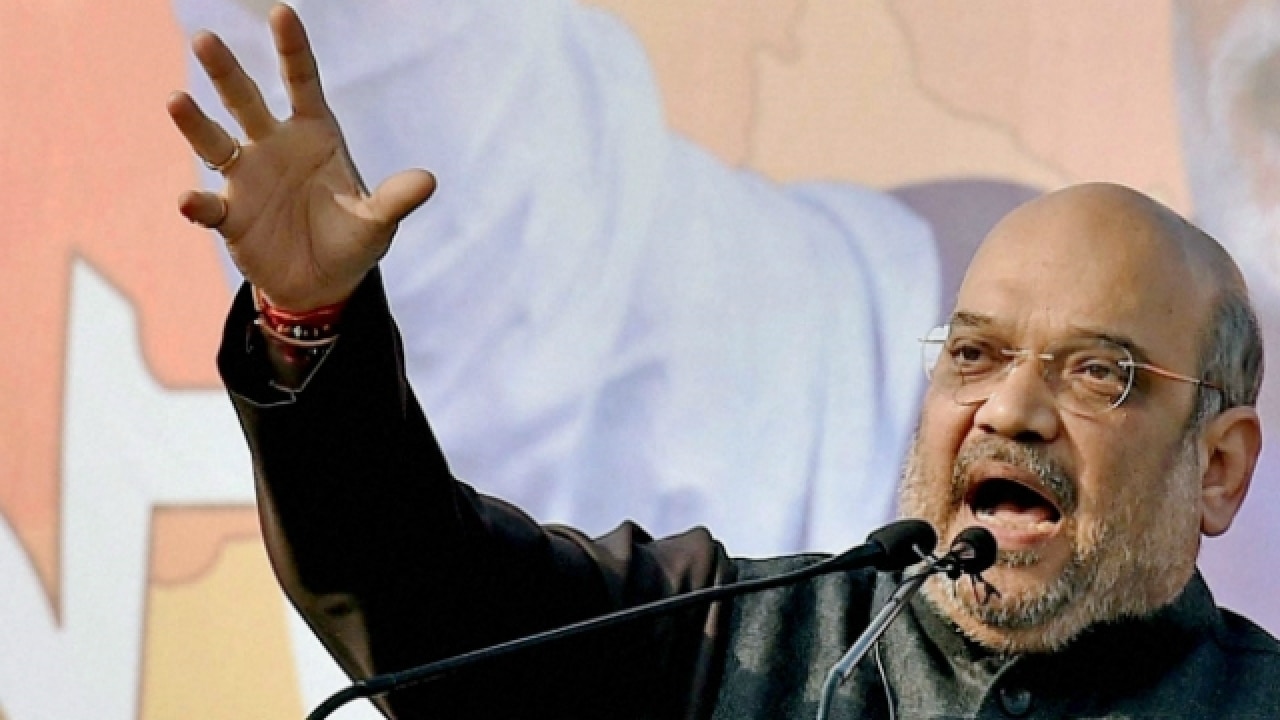
Bharatiya Janata Party (BJP) president Amit Shah who does not talk to press as much as the press wants him to accumulated enough courage for a media interaction on the occasion of completion of two years of the BJP-led NDA’s Modi government. He let the strategy of the party and the government out – to win as many state elections as possible in the run up to the next Lok Sabha round in 2019, and to use the achievements of the government as the calling card for winning over the voters.
That is, Shah feels the need to use the successes of the Modi government in Delhi to win elections in Uttar Pradesh in 2017. It is implied even though it is not being blared out aloud as it would have been done earlier, that the BJP’s victory in Assam assembly elections and the party’s improved position in terms of increase in the percentage of votes polled in Kerala and West Bengal, was due to the good performance of the Modi government. The claim does not bear scrutiny and that is why Shah did not make bold claims on behalf of the Modi leadership but the belief persists that Modi is the talisman that will help the party win at the polls.
The only big claim that Shah could make for his party’s government is that it has been a corruption-free two years compared to the scam-tainted 10 years of UPA. There were no other solid achievements of the government except being a clean one. There has been less talk of Swachch Bharat than there was a year ago. There was no talk of black money and what the government is doing about it. Instead, Shah fell back on Stakhanovite statistics – a Soviet tactic where workers were praised and honoured for increased productivity in the 1930s -- of increased numbers in every field, from the generation of power to foreign direct investments to the use of urea. On all counts, Shah said that figures are the highest since independence.
The only time he was caught on the wrong foot was when a reporter drew his attention to the problem of drinking water in drought-hit areas. A defensive Shah said that if there were no rains, it would not be possible to solve the drinking water problem. And even a special parliament session to discuss the issue, as suggested by the reporter, would be of no avail because the session would not be able to influence the monsoon.
Prime Minister Narendra Modi in his interview to The Wall Street Journal firmly said that there could not be labour reforms only to favour the industrialists and also that the workers cannot be ignored. He said that in India there cannot be a hire-fire policy because the societal ethos is different and there is a sense of obligation. This was an indication that economic reforms that the government intends to implement will be moderate and they may not conform to the prescriptions of Western liberal market economists.
Finance Minister Arun Jaitley in his interview to one of the Indian newspapers admitted that jobs could not be created because of sluggish demand. That is why the government is creating an alternative to job creation by opening up ways for self-employment through various schemes.
Prime Minister Modi and his finance minister seem to be fully aware that there are problems in dealing with the economy at the policy level, and that it is not as easy as it seemed in 2014. Whatever the rhetorical flourishes at public meetings, the Modi government in its chambers realise that at the end of the two years, it has to acknowledge the hurdles on the way.